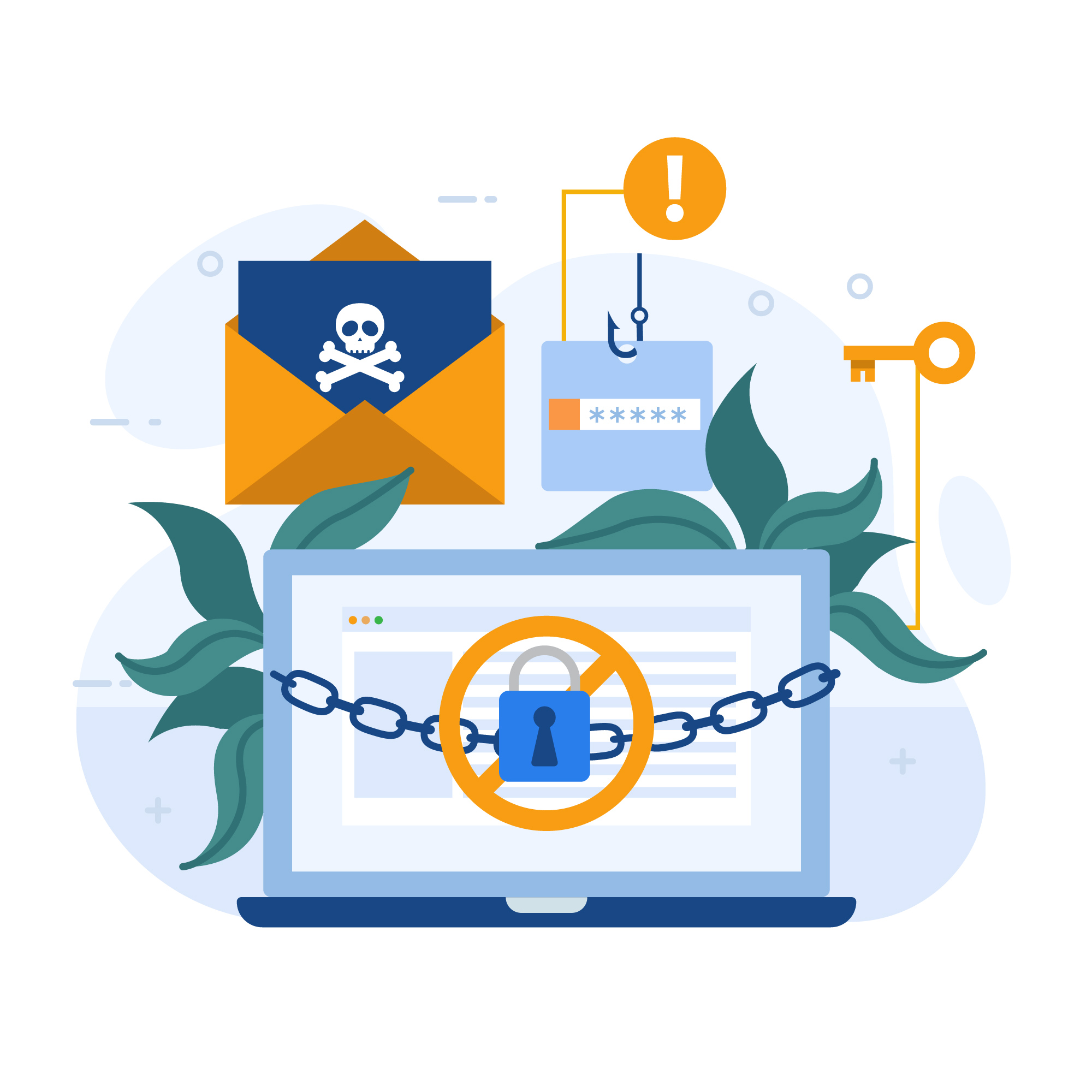
What security do most mailboxes offer?
Most email services, such as Outlook, Gmail and Yahoo, offer a range of security measures designed to protect users against the most common threats. These measures generally include encryption of data in transit, protocols to secure the connection between the email client and the server, and tools to protect user accounts.
Encrypting in transit is standard practice for most email providers. This means that when you send an email, it is encrypted as it travels over the Internet, making it difficult for others to intercept and read it. However, once it reaches the receiving server, the email may be stored in unencrypted form, unless the provider offers specific encryption for data storage.
Security protocols such as SSL/TLS are commonly used to secure the connection between your email client and the email server. This helps protect your login details and the content of your emails when you view or send them.
For account security, many email services offer features such as two-step or multi-factor verification. This adds an extra layer of protection by requiring a second authentication element in addition to the password, thereby reducing the risk of unauthorised access to the account.
Despite these measures, it is important to stress that standard emails are not end-to-end encrypted by default. This means that email service providers and sometimes other third parties can theoretically access the content of emails. For enhanced security, such as end-to-end encryption, specialist email services should be used.
In summary, although the majority of email services offer a basic level of security, including encryption in transit and measures to secure user accounts, they are not infallible and may not be sufficient for very high confidentiality requirements.
How can I send and receive emails securely?
To send and receive email securely, it is important to understand how the different elements of email interact to protect your information. When you use services such as Gmail or Outlook, your emails are generally secured in transit by encryption. This means that messages are encrypted as they travel across the web, preventing unauthorised sources from easily intercepting them. However, the storage of these emails on servers is generally not end-to-end encrypted. It is also worth noting that messaging systems such as Gmail automatically analyse the contents of all users’ mailboxes in order to offer highly targeted advertising.
Providers such as Proton with its ProtonMail service or Tutanota have taken additional steps to ensure email security, offering end-to-end encryption. This ensures that only the intended recipient can read the message, as the encryption is only unlocked on arrival. Services such as Mailfence and Runbox also offer secure solutions, with features focused on data protection and privacy.
Using these secure email services is an effective way of ensuring that your emails remain private. They use encryption keys that are controlled by the user, thereby strengthening security. In addition to your choice of email provider, it is important to adopt personal security practices, such as using strong passwords and enabling two-factor authentication for access to your mailbox.
For those who are in the Google ecosystem, but are looking for added security, options such as Murena smartphones with /e/OS/ offer a private alternative. /e/OS/ allows access to Google applications while focusing on security and personal data protection. The /e/OS Mail application also supports end-to-end encryption, using the PGP/GPG protocol. This guarantees absolute confidentiality when using end-to-end encryption.
By combining the choice of a secure email service provider with the implementation of good personal security practices, you can significantly increase the security of your email communications, ensuring that your messages remain private and protected throughout their journey, from end to end.
The best solutions for secure email:
To have secure email, it’s crucial to choose an email service provider that focuses on encryption and data security. ProtonMail is a leading example in this area, offering an email service with robust end-to-end encryption. This means that your messages are encrypted as soon as they are sent and can only be decrypted by the intended recipient, ensuring private and secure communication.
Mailfence and Runbox are other providers that offer secure email services, with a particular focus on the secure storage of emails and files. These services include security features such as encryption of the data stored on their servers, ensuring that your information remains confidential.
As well as choosing an email provider dedicated to security, it’s important to take personal steps to secure your account. This includes using strong passwords, enabling two-factor authentication, and being careful about the source of incoming messages to avoid phishing attempts.
For users looking for enhanced security, /e/OS/ offers an alternative. This operating system, which comes with a Mail application that supports end-to-end encryption, focuses on privacy and security, while allowing access to Google applications, offering a good balance between ease of use and enhanced protection of personal data confidentiality.
By choosing your email provider carefully and adopting sound security practices, you can significantly improve the security of your electronic communications, ensuring that your emails remain secure and private, from your inbox to the recipient.

